Anglo-Saxons arrive in Britain. The two St Augustines. The Vikings. The Battle of Hastings and the Norman conquest. How the Normans changed Britain.
English for Life in the UK - Anglo-Saxons, Vikings and Normans arrive in Britain
Season 2, Episode 6

Mark
Hello and welcome to the podcast: English for Life in the UK. This podcast is for anyone who wants to improve their English and at the same time learn more about life in this country. You can find a transcript - that is, a written record of this episode - on our website. Details of how to find this are at the end of this episode.
This week's episode is introduced by Christine.
Christine
OK - Welcome to the podcast English for Life in the UK. This week, we're again going to be talking about early Britain but last week we finished with the Romans and we're going to look at some of the people who came to this country after the Romans: the Anglo-Saxons, the Vikings and the Normans.
And this week, as well as myself, we have Mark and John, so I wonder, how are you, Mark?
Mark
I'm good, thank you, Christine - yeah, I'm very well. I went to see my grandchild this week, for the first time for about 6 weeks, and it was a lovely experience for me - just to remind me - she's only 15 months old and going through a lovely phase. So I really enjoyed that.
Christine
Oh lovely - it's so hard, for grandparents, now during these lockdown and these restrictions. I'm so glad you got to see her. What about you, John, how are you?
John
I'm very well, Christine - carrying on with some of our ESOL classes on-line. Things like that, so ... which is good - that we can carry that on through lockdown, so it's not interrupting our work at St Augustine's, too much, is it?
Christine
No - I mean, we all complain about this technology, but we are so reliant on it now! It is quite magic. So, Mark - would you like to start us off, by telling us something about what happened in this country after the Romans left?
Mark
Yes - Ok. So, last week John was telling us a bit about the Romans in Britain and - as he said, eventually they simply had to leave Britain. A few of them stayed, but most of them went, because they were needed elsewhere, to fight different wars in the Roman Empire. That was around 400AD and from that point onwards - really, for about the next 600 years - there were various different people who came to Britain but, in particular. two groups, called the Angles and the Saxons.
(3 minutes: 17 seconds)
Now they came from Northern Europe, what is now largely Germany, also little bits of Scandinavia as well, and they're generally referred to now as the Anglo-Saxons, so those two groups are kind of put together. And there were a number of different invasions from the Anglo-Saxons and they settled into different parts of Britain. And they were separate kingdoms - it wasn't a single, unified country, in any real sense. So there were different kingdoms - Anglo-Saxon kingdoms - in different parts of the United Kingdom, particularly England, and the four main kingdoms were called East Anglia, which still exists now as an area, which isn't exactly the same as the Anglo- Saxon region, but it's quite close to it, on the east of England. And then you've got Mercia, which was basically what is now the Midlands - what we would call the Midlands of England. There's Wessex - which was more in the West - particularly, the South West of England. Then the whole of the Northern part of England was under, what was called, Northumbria, which .... These days there is a county called Northumberland, but Northumbria was much larger than that - was pretty much what we would regard now as the North of England.
So those people came, they settled; they built little villages - we'd probably call them, now - mostly wooden houses, they were mostly farmers, and hunters, ...erm ... small settlements. There. ... there were occasional battles between them and the Britons who'd been here, originally, before them, but also they kind of settled into a way of living. They brought their language and we're going to talk much more about the development of the English language, in a future episode, but we often refer to it as Anglo-Saxon, because that is where the beginnings of what became the English language really comes from. Before that, it was largely Latin as well as Celtic and local languages that were being spoken, at that time.
One interesting ... we were talking last time about archaeologists - people who dig up and find evidence of the past - and one of the most famous ones from this period is a place called Sutton Hoo, which is modern-day Suffolk, and there they found a buried boat. A huge wooden boat that had been buried with lots of treasure and armour and they think that it was probably a burial site for one of the kings and there is a famous ... the Sutton Hoo helmet - is, I think, in the British Museum - and is one of the most famous artefacts of British history that's often referred to, there.
So that's a little bit about the Anglo-Saxons but during that whole period - when Anglo-Saxons became the dominant force - there were also other invasions - and particularly, from the Vikings. Now the Vikings came from what is modern-day Denmark and Norway and a lot of them came and raided - that means, they landed and fought quick battles and took away treasures - took away whatever they could find, really, - including slaves - often, very violent. Some of them, however, didn't just raid, come in and go away again with the treasures and the slaves, they actually settled, so there were some ... also, some Viking settlements. One of the most famous ones of those is around what is modern-day York, but which was called Jorvik, and that is a Viking name and, from Jorvik, we get "Yorkshire" - so actually the modern county of Yorkshire, where we are based, actually has a lot of its origins in those ... that Viking period.
(8:05)
So that's a bit about Vikings the other thing I wanted to say a little bit about is - John mentioned how the Romans had begun to bring Christianity to Britain, but in fact it was also during this Anglo-Saxon period, that Christianity began to develop, in a more serious way, and that was partly as a result of a person called St (Saint) Augustine.
St Augustine of Canterbury, as he has become known, arrived in Britain in the 6th century and he was born in Rome, but he came and he brought a lot of the developing ideas about Christianity to Britain. And he eventually became the first Archbishop of Canterbury and the Archbishop of Canterbury is one of the key figures in the Church of England, today, and always has been, ever since.
However, there is a second St Augustine, often referred to as St Augustine of Hippo. Now he actually comes from North Africa, but at the time of the Roman Empire. So he was part of the Roman Empire, but in North Africa, and this was in an earlier period - the 4th century - and he was a theologian and philosopher, so he wrote and had ideas about Christianity and about ideas of modern living and of how people should relate to each other, and he was very important in the development of Christianity. Now there is no evidence that he ever came to Britain, however, the Centre where the three of us are based and do our volunteering, is the St Augustine Centre, is actually named after that St Augustine: the one who originated in North Africa. And that's particularly interesting for us, because many of our students, of course, that we work with - are actually refugees from North Africa - and so, the link there is very strong.
Christine
Very interesting. Very interesting. I hadn't realised there were two St Augustines. Erm ... I think John you're going to tell us about another invasion, of the Normans. And I think it's that magic date that we all know - that we all learnt at school, here in Britain: 1066.
John
It is - it's a date that everybody - everybody - remembers from their school history lessons, of course, Christine: ‘1066 and all that’. Well, I'm just going to talk a little bit about the Normans - who they were - and how they changed the face of society in this country.
So "Nor - man" basically means "man from the north" - so a lot of people think of the Normans as being French - because they came from Normandy, in the northern part of France. But as the name suggests - they were originally Vikings - like the Vikings that Mark was just talking about, who had invaded Britain and Ireland. So they set up - about 200 years previous to invading England, they .. what they did - they settled in Normandy. They intermarried with the French people who lived there. They adopted French as their language, adopted Christianity, very importantly, but they retained the "warrior spirit" and the expansion ideas of their Viking predecessors.
So we have Edward the Confessor, as the last Anglo-Saxon king of England. Edward died without an heir, which means he didn't have a son who ... Normally, the son would have been the next king to take over - as we call it, the heir to the throne - so there were competition as to who should inherit the throne from Edward. Harold Godwinson was the main English claimant to the throne; there was also William of Normandy, who was convinced that he had been promised the throne by Edward, before he passed away. Eventually, this led to the Battle of Hastings where William of Normandy brought across his knights, infantryand cavalry and landed on the south coast of England and in October, 1066, he was met in battle by Harold Godwinson. Harold's army were defeated. Harold was killed, by an arrow to the eye.
Mark
I think we know quite a bit of that from something called the Bayeux Tapestry - is that right?
(13:06)
John
We do - it's ... I were listening to a programme about this, recently and more recent historical research has proved that it wasn't actually made in Normandy, as was previously believed. It was made in England .. erm ... and it is actually an embroidery not a tapestry. It's a little bit pedantic - but yeah - anyone who's ever in that part of the world - in Normandy - I have visited it myself. It's a magnificent historical document. It details all of the background: of William going to meet with King Edward, and then it shows them all actually building the ships. It illustrates Haley's Comet as well - which is a phenomenon that comes round, every 78 years. So in the year of 1066, the comet appeared and this was seen by the Normans as a great sign that they were going to have a great victory. So that's actually featured on it, as well, and as I say, it actually goes on to show the battle in all its gory detail. Now that's the invasion, the battle and things like that covered.
Now, this was a huge turning point and one of the reasons everyone remembers the date, from school - it was such a huge turning point in English history because, first of all: the language changed. The people who were running the country spoke Norman French, whereas the ordinary peasants and ordinary people did continue to speak Anglo-Saxon. Eventually, the Anglo-Saxon and the French that the Normans were speaking, merged into one - to give us our modern English that we're all learning today. We can still see this, in things like synonym pairs, so "cow" would be the Anglo-Saxon word, or "beef" would be the French word. So, we can see the differences to this day that we've got in the language. They also undertook a survey - so they looked ... they mapped every square mile of land and all the best land and farmland and estates were given over to the Norman knights. So they became the new ruling class in England. They took over all the land of all the old barons and lords and what-have-you - so, it completely changed the face of society and the economy, in this country.
The other thing I must mention, there, are the castles. We can ... we were saying we don't see that much physical evidence of the Roman occupation, of this country, but we still see in all our town and cities ... a great deal of evidence ... in terms of castles and cathedrals. So, in every population centre, where the Normans landed, they built a big stone castle and if the locals were rebellious, or uprising, or fighting back against them, they'd be safe in their castle. And they could use that to project their authority on the surrounding areas. So places like York Minster, Durham Cathedral, Westminster Abbey - all these places were begun to be built by the Normans. Anybody who travels across North Wales as well - Caernarfon Castle, Beaumaris Castle, as well - all these places were built by the Normans, to control the population. So we still see that, in our lived environment, everyday.
As I say, there were .... like we had with the Romans, there was some resistance - to this - especially in the North of England, where we're broadcasting from. So there were rebellions in Northumberland, in Yorkshire - people like Hereward the Wake, who fought ... who continued to fight for the Anglo-Saxon way of life, against the new rulers. And this led, in the late 1060's, to William moving up to the North with his armies and engaged in what was known as "a scorched earth policy" - this was called the "harrying of the North". They slaughtered tens and tens of thousands of people - burnt the cities down, burnt the crops, poisoned the wells - a really, really dreadful time to be in the north of England. After all this had been dealt with, Norman power was firmly established and they went on, as we've said, to invade Wales and latterly, in the 1100's, to invade Ireland as well, which saw the beginning of 800 years of English, and later British, colonisation and control of Ireland.
(17:36)
Mark
This is the part of the podcast where I choose some words or phrases from the episode and explain them in a little more detail. I'm going to focus on two things today.
John, when he was talking about the development of the English language from the French, talked about "synonym pairs" - he was talking about pairs of words which meant the same but in this case, came from the two different languages - from the French and from Anglo-Saxon. So I thought I'd talk a little bit about synonym pairs in general - so these are words or phrases that mean the same, or nearly the same. There are lots of them in English, here are just a few examples:
- end and finish- fast and quick
- help and assist
- buy and purchase
- fun and enjoyment
I suggest you try to find as many that you can think of, to add to that list.
Secondly, I'm going to talk about the word "pedantic". So John was talking about the Bayeux Tapestry. So this is this very impressive, almost 70 metre-long, piece of cloth on which are pictures that tell the story of William the Conqueror and his invasion of Britain and winning the Battle of Hastings. John was saying that the recent evidence shows that actually the tapestry was made in England, although it now is in a museum in Bayeux, in France. He also said that it isn't actually a tapestry but is an embroidery. The differences between these are small but a tapestry is something that is woven on a loom - that is a machine that takes different threads and then, weaves them together. An embroidery is something that is sewn on to a piece of cloth, using lots of different threads. Both create pictures on to cloth - so John was saying that although this ... he was questioning whether the Bayeux tapestry came from Bayeux and was actually a tapestry - that that was being pedantic - he said "I'm being a little pedantic". To be pedantic is to be overly-concerned with, too focused on, minor differences, minor details or rules. So - does it really matter whether it was made in England or in France? - does it really matter whether it was a tapestry or an embroidery? - No - it's still an incredibly impressive, historical, artefact - historical piece of cloth - we can see in a museum, in France. To say that it's not really a tapestry and that it was actually made in England, John was saying, was being a bit pedantic.
(22:05)
That's it for this week. You can find the transcript - that's the written version of this episode - on our website: www.staugustinescentrehalifax.org.uk
And that's where you can also find links to all the other episodes, and the transcripts, so you can listen and read along at the same time. That's also where you can find out how to donate, to help our work. We are a charity supporting particularly, refugees, asylum seekers and migrants but also, all those in need in our local area and we would welcome your support, if you felt able to give it. If you follow on the website, the links to "Get Involved" and "Donate".
We also have an email address - that's englishforlifeintheUK@gmail.com
And we would love to hear from you - your thoughts on our podcast and ideas for the future.
We also have a Twitter account : @EsolSaint
and there is additional material on that site.
I'll spell out all those addresses:
So, the website: w-w-w-.-s-t-a-u-g-u-s-t-i-n-e-s-c-e-n-t-r-e-h-a-l-i-f-a-x.org.uk
So that's the website.
The email is: englishforlifeintheUK@gmail.com - And that's "English for" spelt: f-o-r
And finally, the Twitter account: is : @ [at] [capital E] E-s-o-l- [capital S] -S-a-I-n-t
Thank you very much for joining us and we will be back with you, again, very soon.
Goodbye for now.
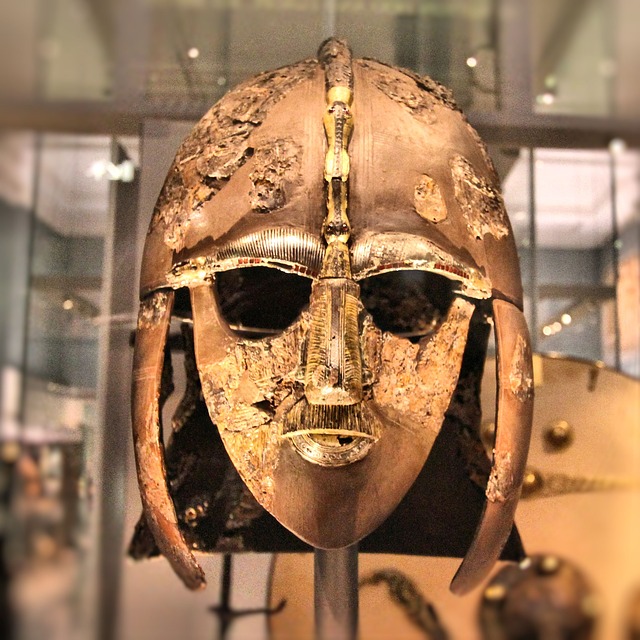
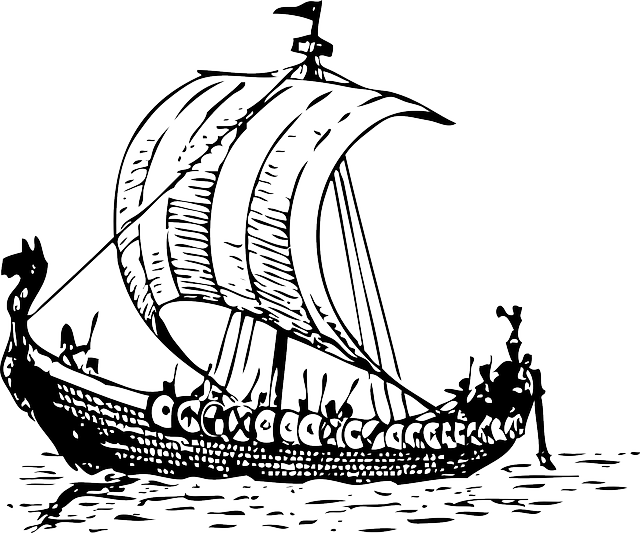
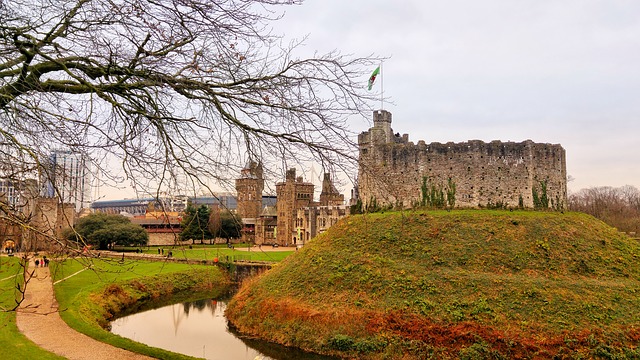
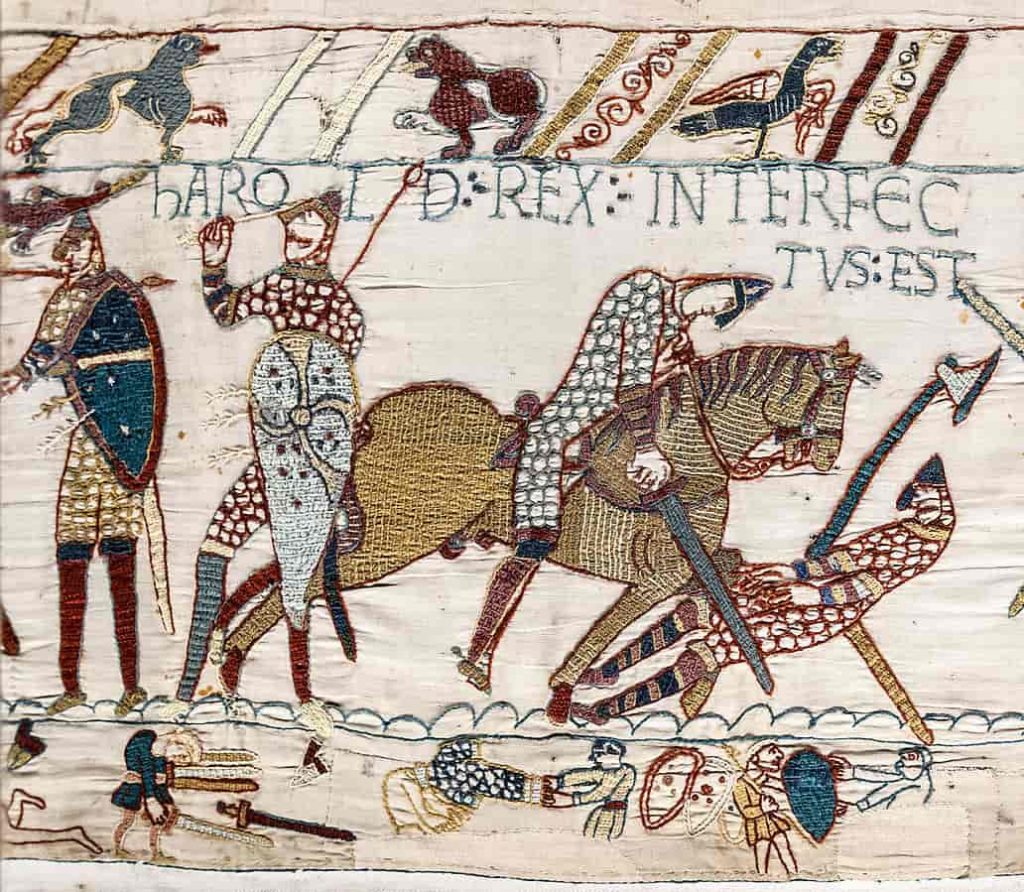
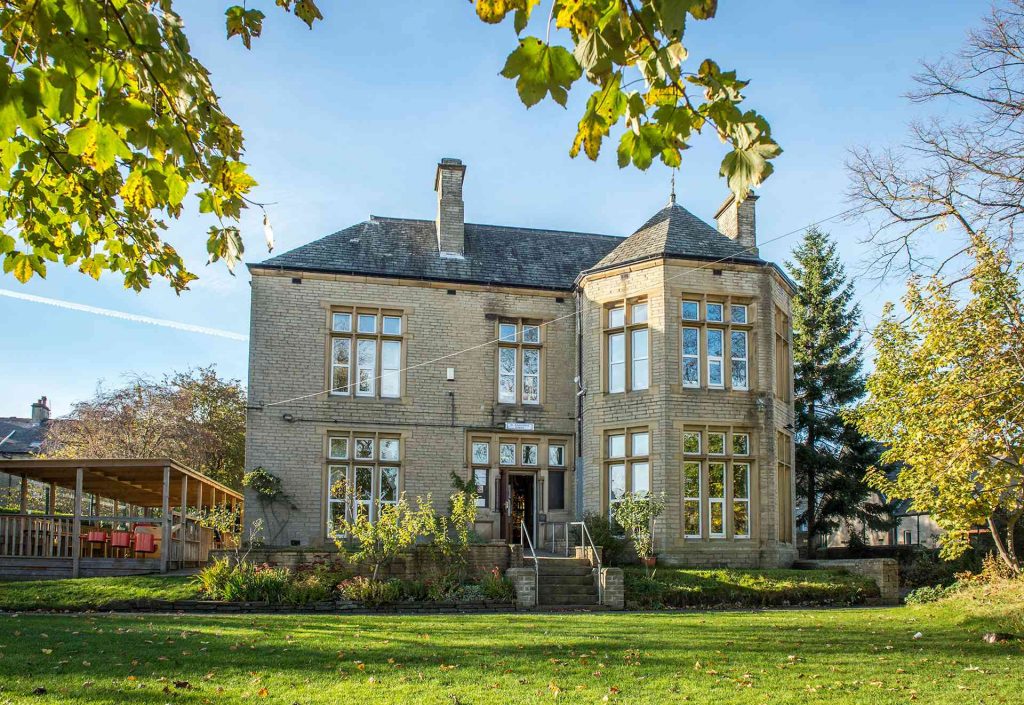
St Augustine's Centre in Halifax.